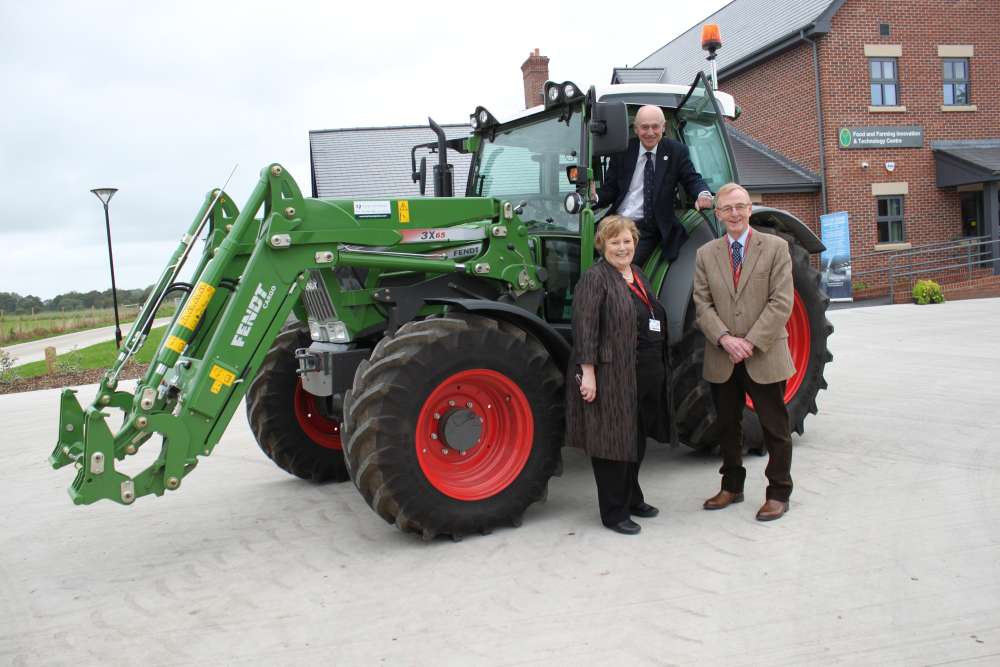
The official opening of Myerscough College’ multi-million pound Food and Farming Innovation and Technology Centre has commenced.
The complex is set to be a sector leading centre of excellence for industry training and research in beef production.
The FFIT (Food and Farming Innovation and Technology) Centre is a major flagship build for agriculture and associated courses at Myerscough.
The main FFIT Centre will house the research and teaching facilities that link with the various technologies in the nearby Livestock Innovation Centre and farm.
The FFIT Centre also boasts facilities to support food research and development with the aim of creating a resource that both local businesses and students can use to investigate opportunities to process and add value to on-farm produce.
This includes specialist teaching, demonstration and research facilities including a teaching laboratory, soil laboratory, instrumentation room and production development kitchen.
Myerscough College Principal and Chief Executive Ann Turner welcomed invited guests to the official opening of the centre, saying: "The FFIT Centre showcases the latest technologies and innovations, sourced from around the world, for precision UK agriculture.
"They have been purpose built to provide the ideal environment to demonstrate cutting-edge developments in the food and farming industries, whilst providing an ideal setting to train and educate the next generation for a highly skilled agriculture industry."
Livestock Innovation Centre
The complex is also home to a Livestock Innovation Centre, which provides new livestock production facilities with embedded technology to promote precision farming practices.
The LIC can accommodate up to 180 cattle at a time, but it is the technology within the building that sets it apart from other buildings typically found on farms.
The £7.5 million project, which has been facilitated with support of the Lancashire Enterprise Partnership, has been more than three years in the making, beginning with an ‘expression of interest’ bid to the LEP in March 2014.
As a result, the plan was further developed with the brief being to establish a centre of excellence at Myerscough College which showcases the use of innovation and technology in farming and the production of food, focusing especially on grazing livestock and grassland management.
The project was finally approved by the LEP in June 2015. Planning permission and contractors were secured in January 2016 and construction commenced in February 2016.
Now the build is complete, staff and students will engage with the technology and are anticipating the research trials that can be carried out on various aspects of livestock management.
AfiFarm system
The AfiFarm system, which feeds directly into the FFIT Centre, is the first installation of its kind in the UK.
The system instantly analyses cow’s milk at source, enabling the farm to quickly identify and act on any potential feeding or health issues, improving milk production, milk quality and the longevity of the herd.
James Oddie is Myerscough College’s Director of Farming Innovations and Operations, and explains more: "Afimilk are world leaders in this technology. It’s a significant investment to the farm here at Myerscough and it will move us forward leaps and bounds in our ability to manage our herd. The potential for research and data we can get is phenomenal.
"Milk gets analysed from each individual cow to check if it has mastitis or other illness, while a pedometer leg tag monitoring system monitors potential distress levels, as well as identifying digestive problems, fertility issues, and lots more.
"All the information can then be accessed via PC software, with alerts being sent directly to a smartphone so immediate action can be taken."
